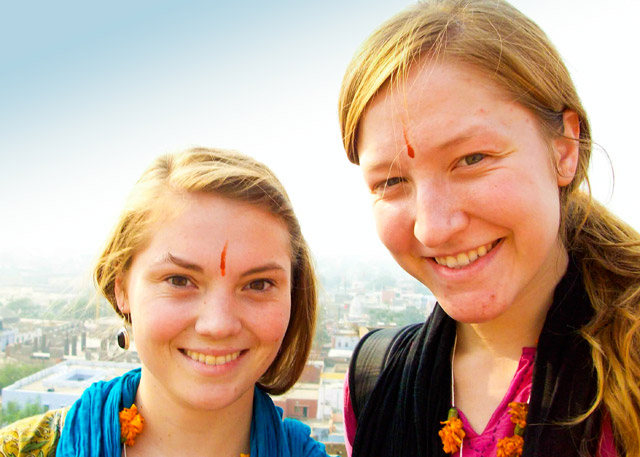Nearly half of all Whitman students will study abroad for at least one semester at Whitman College, traditionally in their junior year. According to a 2008 study conducted by the Institute of International Education, a non-profit organization that collects data on American international exchange programs, Whitman students tend to study in the same locations as their national collegiate peers: France and Spain are perennial favorites across the United States. However, Whitman students consistently favor two destinations that do not make it onto the national list: India and New Zealand.
India ranked the ninth most popular at Whitman in the 2008-2009 school year and its popularity has been steadily increasing. India, as well as other countries in Latin America, Asia and Africa, is a non-traditional study-abroad destination. India’s increasing popularity at Whitman could be a sign of the increasing popularity of such non-traditional destinations, which offer a chance to travel off the beaten path and may appeal to students with an interest in poverty, social justice or global health.
“Usually 35 to 43 percent of the Whitman students who study abroad choose destinations in Latin America, Asia, or Africa. These numbers have increased significantly over the past 10 years, demonstrating a deep interest in non-western, non-traditional study abroad destinations,” said Susan Holme Brick, director of international programs. “Students often elect to study in places that they perceive to be difficult to travel to later on their own.”
One such student was Ellie Klein, a senior who studied abroad in New Delhi, India last fall.
“I had originally wanted to go to Africa, but my mom thought it was too dangerous, so I decided to go to India. The SIT program there seemed to have similar aspects to the program in Africa I had wanted to go on,” said Klein.
She wanted a more hands-on experience, in contrast to the classroom-oriented education she experienced at Whitman.
“The culture in India is incredibly different, but I never really experienced culture shock when I was there. I think I expected things to be so dissimilar, that I wasn’t too surprised by it. The people I met and interacted with were, for the most part, friendly to me as an American. They often seemed incredibly curious about our culture and anxious to learn more about it,” Klein said.
Not all popular Whitman study abroad destinations attract students for those same reasons, however. New Zealand, another unusually popular standout at Whitman College, attracts people looking for yet another type of study abroad experience.
“New Zealand is like America 30 years ago. Culturally, it is very mildly different,” senior Nate Conroy said.
Nate Conroy attended University of Otago in Dunedin, New Zealand last year. He took advantage of the natural beauty of the island and explored the backcountry when not attending class, which he only had three days a week.
“It was a really long vacation,” Conroy said.
Conroy is not alone in enjoying New Zealand. Far from it, in fact. New Zealand consistently ranks among the top choices for Whitman students who study abroad, one of Whitman’s biggest variations from the national preference in study abroad.
One likely reason for this discrepancy lies in Whitman’s choice of partner programs, where students’ Whitman financial aid can travel with them. The University of Otago is one such partner program and there are two partner programs in India. Roughly three-quarters of students who study abroad do so in such programs.
There are other reasons as well that New Zealand may be a more popular destination at Whitman than nationwide.
“Our partner program at the University of Otago in New Zealand is a good fit for science majors,” said Brick.
The University of Otago is strong in science, particularly biology and geology, and Whitman students can take classes in English. Some students may choose to go to New Zealand to take science classes in their first language.
In some ways, the programs in India and New Zealand are opposites. New Zealand offers security and the chance to learn in a foreign country that may not be as culturally foreign as others. India offers a chance to explore a culture with a different cultural history than the United States. Both, however, offer a chance to learn in a place a world away from Whitman. For details on these programs and many other Whitman-approved options, students may visit the Web site for Off-Campus Studies.








